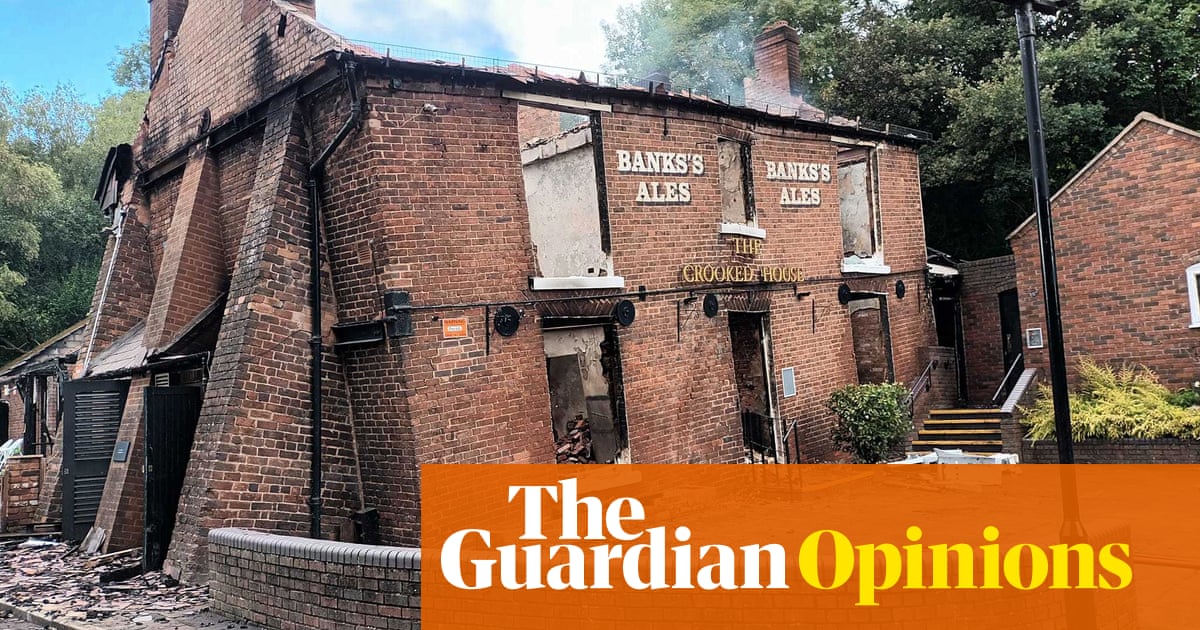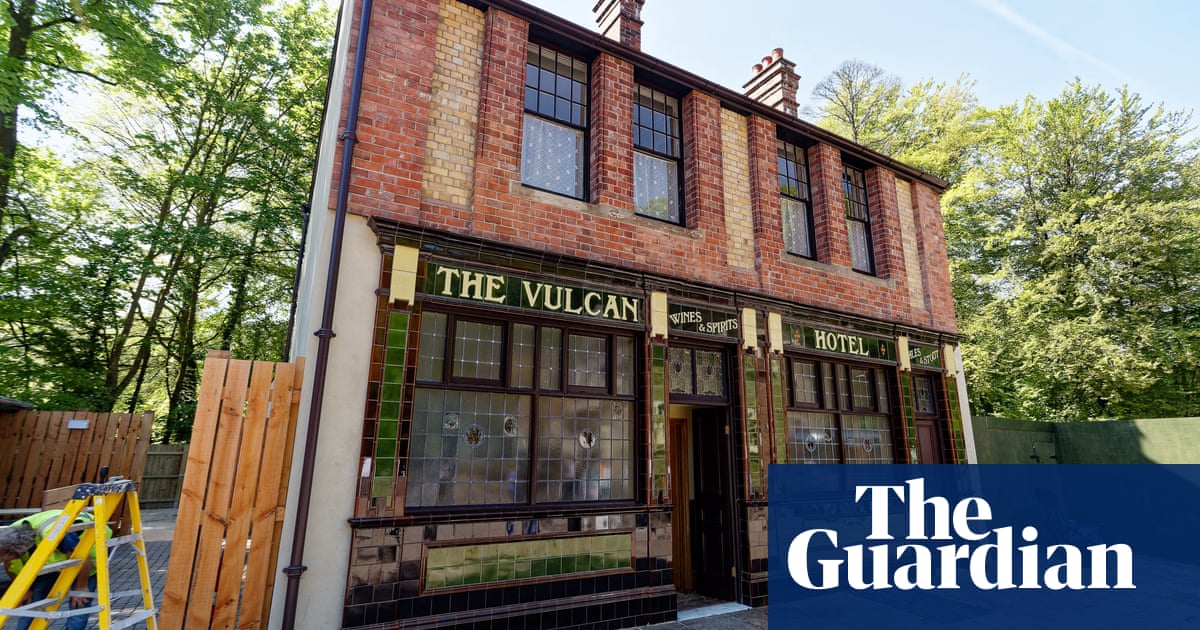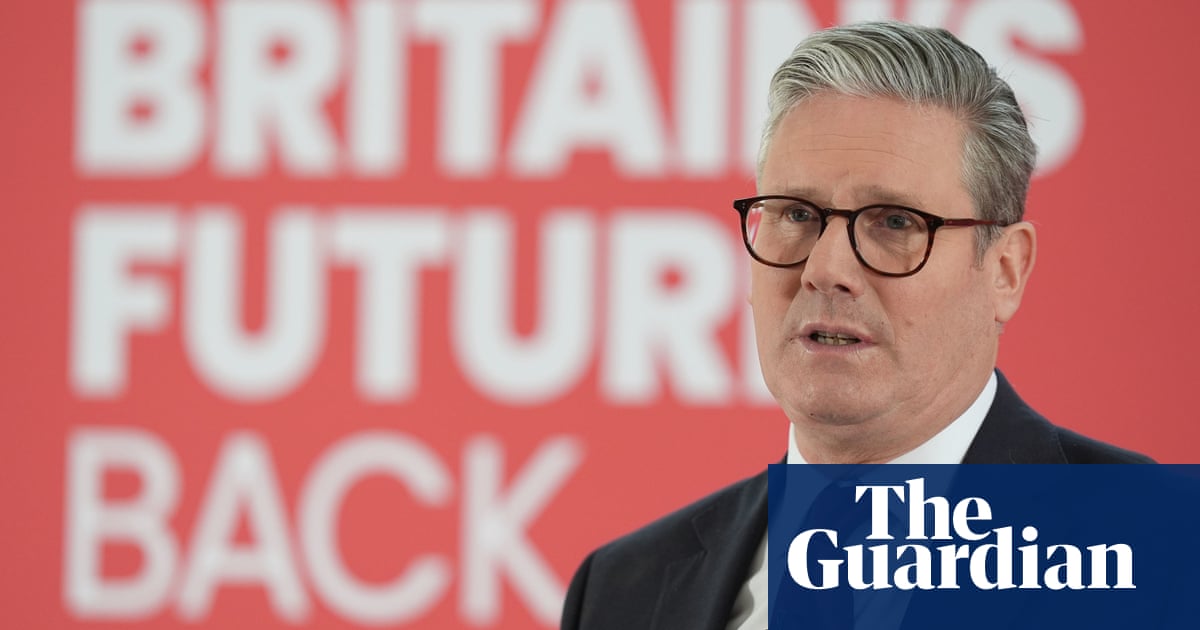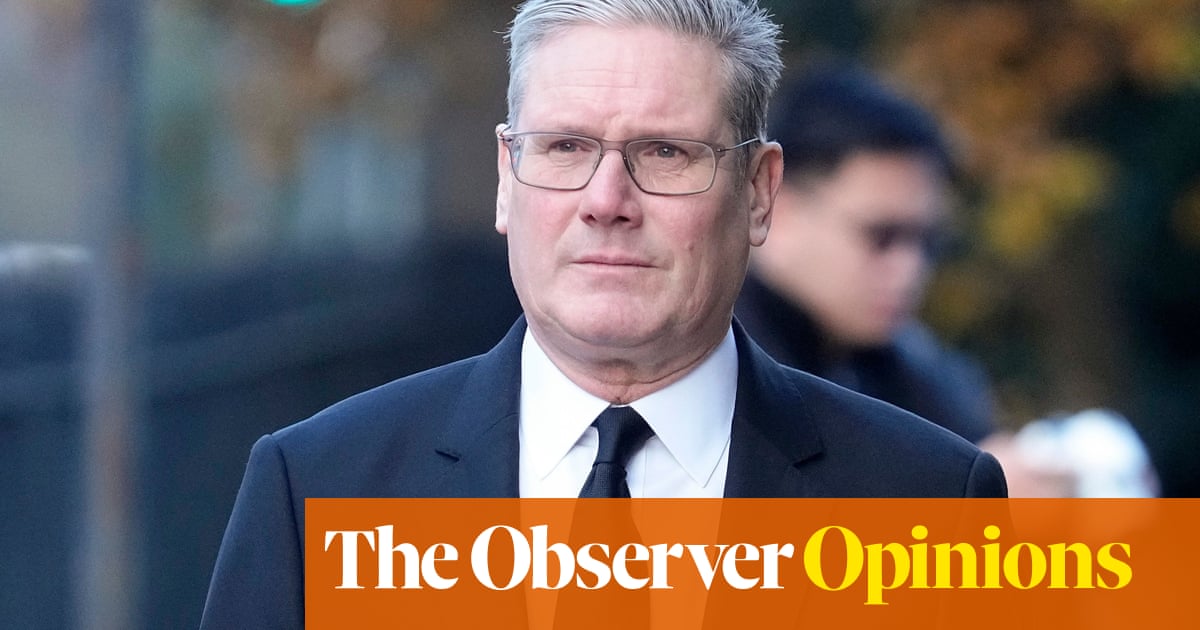
Keir Starmer entered Downing Street as Labour prime minister with a promise to use his historic election victory to rebuild Britain “brick by brick” and provide security for millions of working-class families.
He said now was the time to change course because for “too long now we have turned a blind eye” to people’s problems. It was inevitable they had lost trust in successive governments who had abandoned them, he added.
“My government will fight, every day, until you believe again,” Starmer said in a speech outside No 10 that had echoes of Tony Blair’s vow to act as the servants of the people in 1997.
“From now on, you have a government unburdened by doctrine, guided only by a determination to serve your interests. To defy, quietly, those who have written our country off.”
In a dramatic landslide victory, Labour ended 14 years of Conservative rule, with the worst ever performance for the party that ushered in Brexit and delivered chaotic and at times dishonest government.
The Tories lost dozens of constituencies they won for the first time in 2019 under Boris Johnson, with Liz Truss among those ousted.
Starmer’s party won 412 seats to the Tories’ 121, while the Liberal Democrats were on a record 71, the Scottish National party (SNP) on 10, Reform UK on five and the Greens on four.
On Friday evening there was one seat left to declare, with a recount to start at 10.30am on Saturday. It is expected to be claimed by the Liberal Democrats after the Scottish National party’s candidate conceded defeat in the closely fought contest in Inverness, Skye and West Ross-shire.
However, an election campaign marked by voter apathy and more general disillusionment with the political system was reflected in turnout, which was estimated to stand at about 60%, the lowest since 2001 and down from 67% at the last general election.
In a sign of the significant work Labour must do to fulfil Starmer’s pledge to unite the country, the party lost four seats to pro-Gaza independent candidates and was run close in several others.
Jonathan Ashworth, who was shadow Cabinet Office minister, was one of the highest-profile political casualties of the rise in support for pro-Palestinian candidates in urban areas with high Muslim populations.
The threat posed by Reform will also be felt keenly by Labour and the Conservatives. The hard-right party won 14% of the vote – more than 4m votes in total – and came second in more than 100 seats.
In Starmer’s speech, he paid tribute to the “dedication and hard work” of his predecessor, Rishi Sunak, saying his achievement in becoming the first British Asian leader of the UK had required “an extra effort that … should not be underestimated by anyone”.
Turning to Labour’s task ahead, he struck a note of optimism as he said his party could turn around the lack of trust in politics and the draining away of hope that had happened under previous governments.
“This wound, this lack of trust can only be healed with actions, not words,” he said. “I know that, but we can make a start today with the simple acknowledgment that public service is a privilege and your government should treat every single person with respect.
“Whether you voted Labour or not, especially if you did not, I say to you directly, my government will serve you. Politics can be a force for good. We will show that. We changed the Labour party, returned it to service and that is how we will govern.”
The new prime minister, accompanied by his wife, Victoria Starmer, also told the crowd of supporters waving Scottish, Welsh and union flags that the UK needed a “bigger reset, a rediscovery of who we are” but that “one of the great strengths of this nation has always been to navigate a way to calmer waters”.
Starmer said he stood for “stability and moderation” and argued that for too long governments had turned a blind eye as millions slid into greater insecurity, as he promised to transform Britain’s crippled public services.
He added: “Brick by brick, we will rebuild the infrastructure of opportunity. The world-class schools and colleges, the affordable homes that I know are the ingredients of hope for working people. The security that working-class families like mine could build their lives around.”
In apparent reference to the dramas and scandals of the Johnson, Truss and Sunak eras, Starmer also said Labour would “tread more lightly on your lives” after an “era of noisy performance”.
The new government is expected to announce a blitz of planning changes over the weekend in an immediate drive to boost growth. Next week, the new prime minister will fly to Washington for the Nato summit and a potential first bilateral meeting with Joe Biden.
Within hours of entering No 10, Starmer assembled his first cabinet, which contained no surprises. Rachel Reeves was swiftly confirmed as Britain’s first female chancellor and Angela Rayner as deputy prime minister, along with the levelling up brief.
Yvette Cooper was appointed home secretary and David Lammy confirmed as foreign secretary. After being made health secretary, Wes Streeting said the NHS was “broken” and could not “be fixed overnight”.
Starmer’s cabinet will have the most state-educated and female ministers in history.
In Sunak’s resignation speech outside No 10 earlier on Friday, the sombre-looking Conservative leader apologised to the country and said he had heard voters’ “anger and disappointment” and desire for change.
He congratulated Starmer on Labour’s resounding victory, saying that “whatever our disagreements in this campaign he is a decent, public-spirited man who I respect”.
Sunak said he would step down as Tory leader once the arrangements for selecting his successor were in place. Senior party figures are pushing for the contest to be concluded quickly, with a new leader crowned by September, to avoid the Reform leader, Nigel Farage, positioning himself as the main opposition to Starmer, and Labour setting the narrative on the Tory record.
Potential contenders among the heavily depleted Conservative ranks have already started organising their campaigns, with Kemi Badenoch, Tom Tugendhat, Priti Patel and Robert Jenrick all tipped to stand.
In the aftermath of their defeat, party figures have been arguing about the wisdom of trying to win back voters who switched to Reform either with rightwing policies or by presenting a broader vision to reclaim the centre ground.
Penny Mordaunt, the former Commons leader, and Grant Shapps, the former defence secretary, had both been expected to run for the leadership but lost their seats in the Tory bloodbath. In their concession speeches, both warned their party not to swing to the right.
The outgoing chancellor, Jeremy Hunt, is likely to play a role in rebuilding the party after he unexpectedly saw off a strong challenge from the Liberal Democrats in his Godalming and Ash seat. He clung on by 891 votes.
The Tory chair, Richard Holden, survived by only 20 votes in Basildon and Billericay, an Essex seat his party won with a 20,412 majority in 2019.
A triumphant Farage appeared at an event in Westminster on Friday alongside Reform’s other MPs. Farage, who became an MP on his eighth attempt after winning the Essex seat of Clacton, quickly lost his bonhomie as he found himself heckled by protesters from the group Stand Up to Racism.
He shouted the word “boring” repeatedly as the activists were escorted from the room, before resuming a speech in which he promised to professionalise Reform.
The Lib Dems are poised to push Labour over a cross-party plan for social care after a stunningly successful night, in which they won 71 seats – up from 11 in 2019 – and removed a string of Tory MPs including four cabinet ministers.
In a vindication of Ed Davey’s decision to rigidly focus the party’s campaign on a series of target seats, its share of the vote rose by just 0.6 percentage points from 2019 but resulted in more than six times as many MPs.
Many of these came in formerly ultra-safe Tory heartlands, with the Lib Dems now having MPs in the constituencies once represented by three former prime ministers, Theresa May, David Cameron and Johnson.
In Scotland, the pro-independence Scottish National party lost at least 38 seats while Labour made massive gains, prompting the SNP leader, John Swinney, to say the party needed a period of soul-searching.
In Wales, the Conservatives experienced total wipeout, while in Northern Ireland Sinn Féin became the largest Westminster party after voters turned against the Democratic Unionist party.












